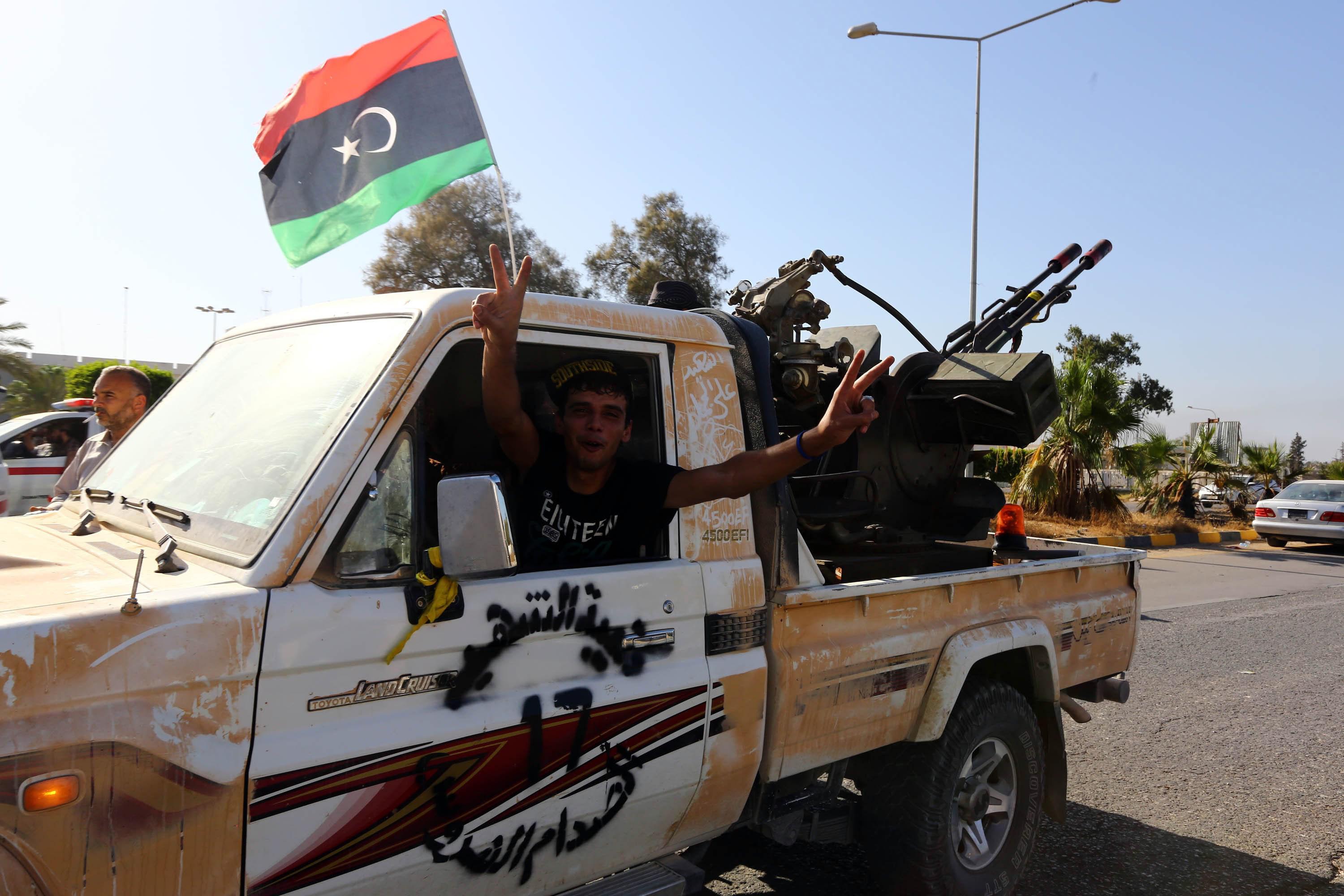U.S. officials say that jets from the United Arab Emirates, using airbases in Egypt, attacked an Islamist militia in Libya this week in an (apparently unsuccessful) attempt to turn it back from Tripoli. There’s been intense fighting between regional militias near the Libyan capital in recent days, and the group from Misrata, which was targeted in the attack, has now apparently taken control of the Tripoli airport.
The UAE’s foray into Libya feels like a turning point both in the dynamics of the region and regarding the United States’ involvement in the Middle East. Despite all the various ways that regional powers have sought to influence each other’s internal politics, the U.S. and Europe (and on a few occasions Israel) have largely had a monopoly on airstrikes and direct military intervention. With crises elsewhere taking up diplomatic attention, U.S. involvement in the worsening situation in Libya has been limited. It shouldn’t be too surprising that others have stepped in to fill the void.
The New York Times, which originally reported on the strikes, puts them in the context of a larger proxy battle in the Middle East between Egypt, the UAE, and Saudi Arabia—which have sought to roll back the gains made by Islamist groups—and Turkey and Qatar, which have largely supported them. This battle will mostly be fought within the region’s most unstable countries, including Syria, Iraq, and Libya.
This isn’t the UAE’s first venture into Libya. The country participated in the air operation that led to the overthrow of Muammar al-Qaddafi in 2011. More recently, it’s believed to be backing militias from the western Zintan region—one of the groups battling for control of the increasingly chaotic country.
The U.S. and four European governments issued a statement warning against “outside interference” in the Libyan conflict, and the strikes apparently caught U.S. officials off-guard, though a skeptical report in Foreign Policy casts doubt on whether this could really have taken place without U.S. knowledge. The UAE has been silent about the strikes, and Egypt has denied direct action in Libya, which leaves open the possibility that it merely supported a strike by another party.
But the big picture here is that while America’s ostensible enemies—Iran and Syria—are carrying out military operations in Iraq, its ally, the UAE, is bombing Libya. And it doesn’t seem like the United States is calling the shots.
